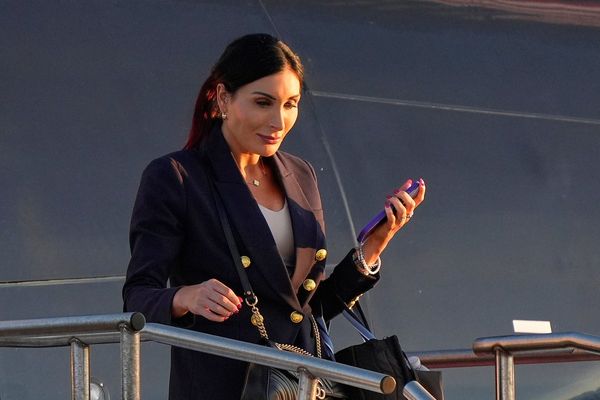
Boris Johnson made a surprise appearance in Ukraine on Sunday as he denied any conflict of interest over his role in appointing a new BBC chairman while in No 10.
Labour has asked the watchdog for public appointments to examine the recruitment process after it was reported Richard Sharp helped Johnson with his personal finances during the interview process for the role at the corporation.
The Sunday Times said Sharp, a former Goldman Sachs banker, was involved in helping to sort out a guarantee on a loan worth up to £800,000 for Johnson in late 2020.
While the loan guarantee was itself given by Sam Blyth, a Canadian businessman and distant cousin of Johnson, the report said Sharp had helped with the arrangement, including having a conversation with Simon Case, the cabinet secretary.
While Sharp has not commented, a spokesperson for Johnson rejected any wrongdoing. Johnson was visiting Ukraine on Sunday, holding talks in Kyiv with the country’s president, Volodymyr Zelenskiy, who Johnson said had invited him. He also visited the towns of Borodianka and Bucha.
“The suffering of the people of Ukraine has gone on for too long,” said Johnson, who as prime minister left domestic political turmoils to travel to Ukraine several times. “The only way to end this war is for Ukraine to win – and to win as fast as possible.”
Lucy Powell, the shadow culture secretary, has written to William Shawcross, the commissioner for public appointments, to request he examine how Sharp was appointed, saying it was “vital” for the public to know the process had been fair and transparent.
Sharp’s reported involvement in securing the loan guarantee was seemingly not declared to the culture department’s appointment panel, to the BBC, or mentioned during a pre-appointment hearing before the culture, media and sport select committee, Powell wrote.
“The BBC derives its public trust and national standing from its independence and impartiality, something we hear a lot about from the government about the BBC,” she said. “It is vital that the public and parliament can have trust in this process and it is free from any real or perceived conflict of interest.”
A spokesperson for Johnson confirmed that the then-PM did have a dinner with Blyth and Sharp in November 2020, as reported by the Sunday Times, saying Johnson had known Sharp for almost 20 years. The spokesperson added: “So what? Big deal.”
Sharp had “never given any financial advice to Boris Johnson, nor has Mr Johnson sought any financial advice from him”, the spokesperson said, saying all Johnson’s financial arrangements “have been properly declared and registered on the advice of officials.”
James Cleverly, the foreign secretary, the minister sent out for media interviews on Sunday, said he had not inquired about whether the Sunday Times’ version of events was accurate.
“I’ve not had a conversation with either of those parties about that,” Cleverly said told Sky’s Sophy Ridge on Sunday programme. Asked why he had not sought to find out any information before appearing, Cleverly said: “You’re the journalist, not me.”
In a subsequent interview on BBC One’s Sunday with Laura Kuenssberg, Cleverly said Sharp was an “incredibly accomplished, incredibly successful individual who brings a wealth of experience with him”, and that he had “absolutely no doubt he was appointed on merit”.
A government spokesperson said Sharp was appointed “following a rigorous appointments process including assessment by a panel of experts, constituted according to the public appointments code”. They added: “The recruitment process is set out clearly and transparently in the governance code on public appointments and overseen by the commissioner for public appointments.”







